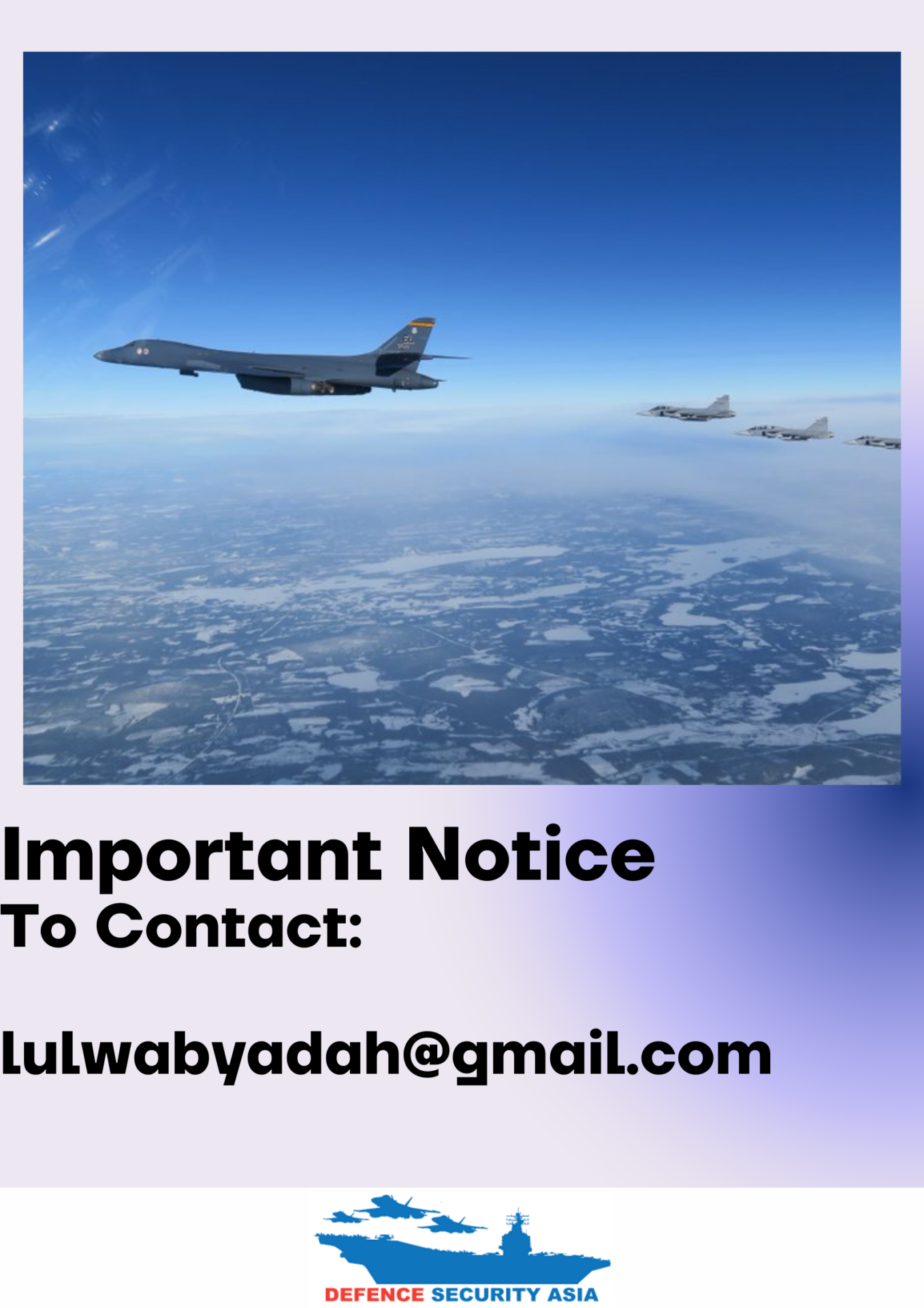Qatar and Kuwait Prohibit US from Using Its Air Bases, Airspace for Strikes on Iran
The U.S. has stationed its military aircraft at the Ali Al Salem Air Base and Ahmed Al Jaber Air Base in Kuwait, and at the Al Udeid Air Base in Qatar, which is the largest U.S. airbase in the Middle East.
(DEFENCE SECURITY ASIA) — Qatar and Kuwait have reportedly issued directives to the United States stating that their fighter jets are not permitted to use airbases in these Arab nations to launch airstrikes against Iran.
Not only are U.S. fighter jets prohibited from using military bases, but Qatar and Kuwait have also forbidden the use of their airspace for any military actions against Iran.
This measure significantly limits Washington’s ability to conduct strikes against Tehran.
Both Qatar and Kuwait, which border Iran, have stressed their neutral stance and desire to avoid any conflict in the region.
The U.S. has stationed its military aircraft at the Ali Al Salem Air Base and Ahmed Al Jaber Air Base in Kuwait, and at the Al Udeid Air Base in Qatar, which is the largest U.S. airbase in the Middle East.

In February, reports indicated that several Arab countries decided to restrict permissions granted to U.S. and allied fighter jets for conducting airstrikes against Iran’s proxy groups from their airbases.
Major Arab airbases, especially in the Gulf states, host a significant number of U.S. and allied military assets, including fighter jets, reconnaissance aircraft, refueling planes, and armed drones.
U.S. media outlets like Politico have reported that Gulf Arab countries, including the United Arab Emirates (UAE), are now limiting U.S. and allied combat aircraft from departing their airbases to launch airstrikes against Iranian proxy groups.
Politico cited senior U.S. Defense Department officials in its reports, which also noted tensions between senior UAE officials and Washington regarding airstrikes against Iranian proxies from its territory.
The United States is expected to “protect” Israel should it be attacked by Iran in retaliation for Israeli fighter jets bombing the Iranian embassy in Damascus, Syria, which resulted in the deaths of three senior Iranian military officials.

Recently, U.S. President Joe Biden stated that Washington’s commitment to Israel’s security remains solid and that it will take all necessary measures to protect Tel Aviv from attacks by Iran and its proxy groups.
This statement raises the possibility that the U.S. might join in an attack against Iran if Tehran takes military action against Tel Aviv.
Meanwhile, media reports have indicated that Iran has informed several Arab countries to advise the United States not to intervene if the Jewish state is attacked by Tehran.
Iran has warned that if Washington intervenes by supporting Israel, Tehran will target U.S. military bases in the Middle East. — DSA



Comments are closed.